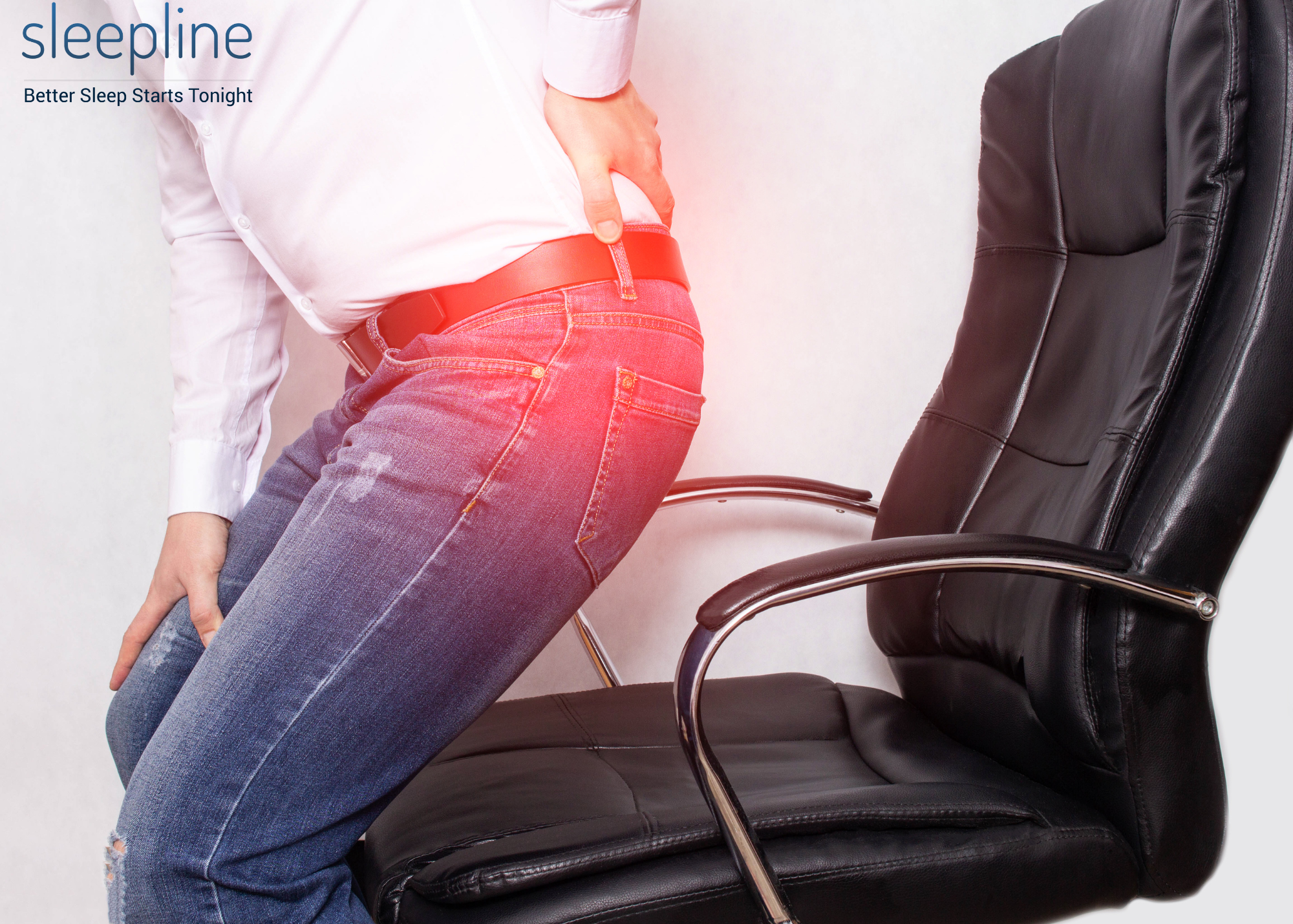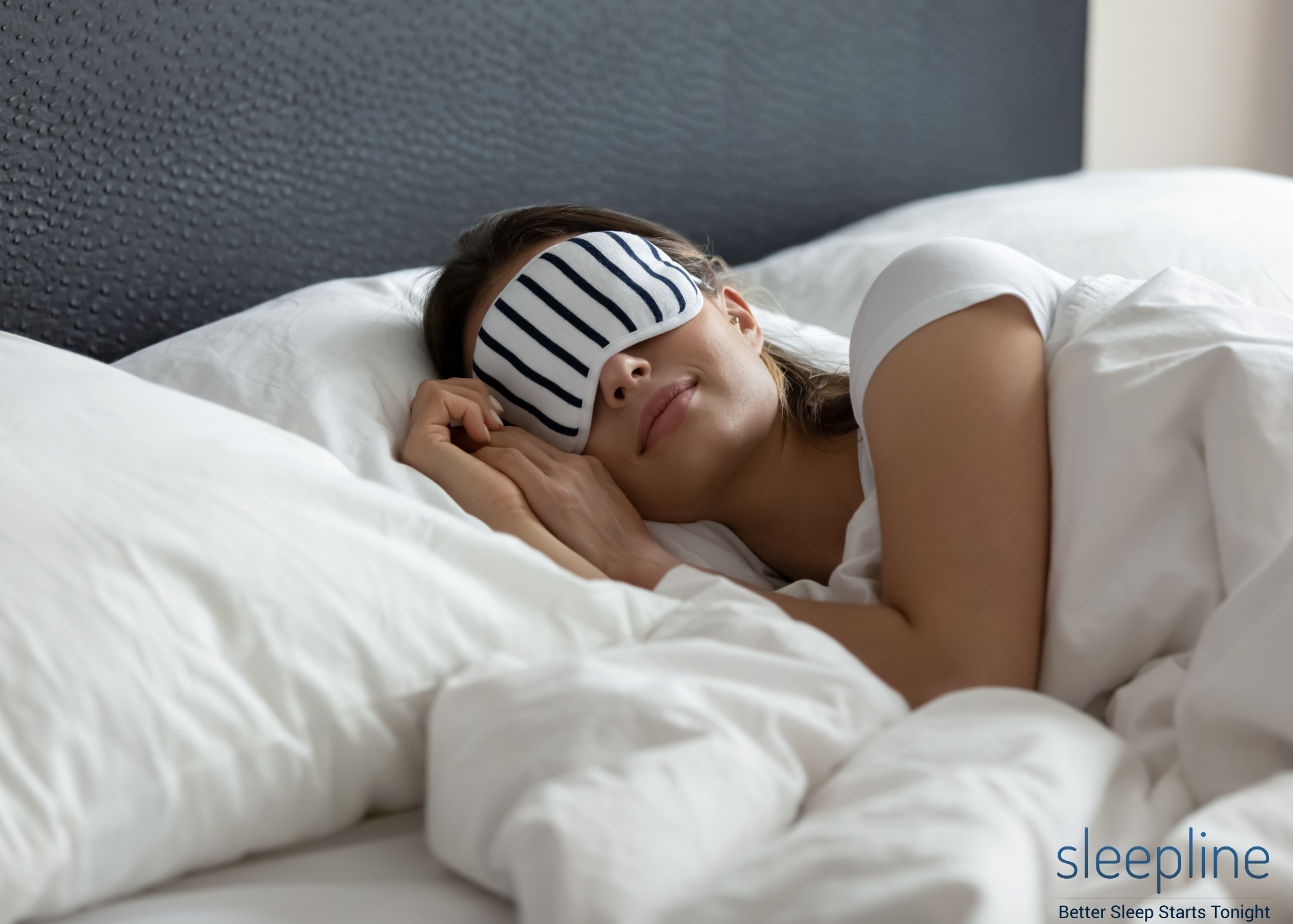
At times we are compensated for the links you click at no cost to you. Learn more about why you should trust our reviews and view our disclosure page.
The information on this website is not intended to replace a one-on-one relationship with a qualified health care professional and is not intended as medical advice. Read our full medical disclaimer.
Memory foam mattresses are often recommended, especially when it comes to back pain relief. They are popular for a variety of sleeping positions and some people think that they give much better pressure relief compared to traditional mattresses. Others think that they’re the cause of their back pain. So is memory foam good for your back? Let’s take a look and find out.
Is memory foam good for your back compared to other mattress types?
Memory foam mattresses can be good for your back and even relieve some of the pain you might be struggling with, but they’re not for everyone.

You need to consider mattress firmness and quality because they are almost as important as the materials themselves. And then there’s each individual person with his own specific preferences, sleep positions or medical conditions, body weight, and budget.
For example, a soft memory foam mattress could be the long-sought back pain solution for one person, but it could also be the cause of newly developed back pain for another. If you’re concerned about back pain from your foam mattress, read our guide to mattresses without memory foam.
Like any other mattress type, memory foam mattresses have their pros and cons. But today we’re focusing on the specific situations in which a memory foam mattress could be good for your back and situations when the opposite is likely to be the case.
After all, 43% of sleepers prioritize back support when shopping for a new mattress, so you’re definitely not the only one who’s interested in this topic.
Situations where memory foam is good for your back
Most of the time, those who benefit from a memory foam mattress are those who struggle with painful pressure points and need pressure relief. Here’s when you should consider memory foam.
You’re an athlete with muscle soreness
People who play a lot of sports and frequently have sore muscles need pressure relief. Sore muscles are better off on a softer surface where they can recover more effectively.

Moreover, certain sports, such as marital arts, cause injury as well as soreness. It’s much easier to fall asleep when you don’t put extra pressure on all the painful areas.
You have back pain that gets worse with pressure
Certain types of back pain (such as sciatica) are aggravated when your back and hips press against firmer mattresses because firm surfaces increase the pressure on painful points, such as the sciatica nerve.

Memory foam is beneficial for people with some medical conditions because of how well it absorbs the pressure, hugging the entire body part that sinks in the mattress.
So instead of having one small point (such as the sacrum) which would take in all the pressure, memory foam allows the pressure to spread equally to a wider area (such as the entire lower back and gluteal areas) feel much softer and more pleasant.
You’re a side sleeper
Side sleepers typically appreciate softer mattresses and memory foam mattresses. But a very firm memory foam mattress wouldn’t cut it for this type of sleeper.

This is because when you sleep on the side, you have two main pressure points – the shoulder and the side of the hip. A memory foam mattress sinks right where you need it, so you’d feel your shoulder and hip sink in, while your waist still gets the necessary amount of support.
The side sleeping position just feels great on a medium-soft or a medium-firm memory foam mattress – speaking from experience! Firm mattresses are nowhere as near as comfortable.
You prefer softer mattresses
Some people just love mattresses that are below 6 on a firmness scale. You might enjoy a softer mattress simply because you got used to sleeping on one or you might be subconsciously opting for a bed that can give you the most comfortable and least painful sleep.
Still, we do have to warn all soft-bed-loving people that sometimes a too-soft mattress doesn’t offer enough support, especially for heavy individuals or stomach sleepers, which can result in back pain. So if you wake up in pain, you might have to ditch that plushy-comfy mattress for something that can actually support your body.
Good night’s sleep comes from a variety of factors, proper support being one of them!
You have joint pain or arthritis
Memory foam helps people with osteoarthritis, rheumatoid arthritis, and any type of joint pain, such as after a sports injury or an accident, and especially those suffering from spinal arthritis (which can appear anywhere throughout the spine or in the neck) or spinal stenosis.
If you have any of the above problems, you’ll probably agree that pressure is not your friend. What you need is the pressure to dissipate all around and a mattress that won’t push back against your body.
You own an adjustable bed
You definitely want an all-foam mattress on an adjustable bed, because they can change their shape together with the adjustable base.
You don’t want a mattress with base layers that are too firm to be able to change shape as necessary. Memory foam mattresses and most memory foam hybrids perform perfectly well on adjustable beds.
You have degenerative disc problems
Memory foam mattresses are often recommended for degenerative disc problems. However, there is no unique solution as to which type of bed works for people with this issue. Some found their solution in waterbeds (what ever happened to them?), some in adjustable beds, some in firm, and some in soft mattresses.
If you want to have options, you might opt for one of the flippable foam mattresses where one side is firmer than the other. Layla is a great example of an all-foam flippable mattress.
Situations where memory foam is bad for your back
There are times when memory foam could be causing you back pain. This is never pleasant news, especially because a mattress isn’t a small investment. Here’s another unpleasant thought – if your new mattress is giving you a bad time, then how many mattresses do you have to go through before finding the right one?
Here are some of the common reasons you might not be compatible with your memory foam mattress – or, perhaps, your mattress itself is the problem.
You’re a stomach sleeper
OK, by now you’ve probably read volumes about how this is the worst sleeping position – the doctors say so, and the research says so. But they aren’t wrong – your sleeping position could be giving you back pain, especially in the lower back.

As you’re lying on your stomach, your hips sink in more than your legs or stomach – simply because your bottom/hip area is naturally heavier than the surrounding body parts.
Stomach sleeping tilts your pelvis in a way that strains your back and puts your lower back muscles in an unpleasant (and unfavorable) position. If you sleep like this on a soft memory foam mattress, you’re making the whole thing much worse.
This could give you poor posture, such as anterior pelvic tilt. If you already have this condition, stomach sleeping can aggravate it!
You’re extremely overweight
Heavy people (this includes both overweight and just really big) are not fit for soft or medium-soft beds. This is because such beds usually can’t give proper spinal support (or any other kind of necessary support) to extremely heavy individuals.
Preferable sleep surfaces for these people include something like the Saatva HD, which is quite a firm mattress, but with a pillow top for a plush feel.
Your memory foam mattress is cheap
Not every affordable mattress is bad, but it quite often is the case with cheap foam mattresses. A cheap mattress might work well for a while, and then it just breaks down, looking all saggy and lumpy.
You can’t have restful sleep on an uneven sleeping surface that isn’t good at relieving pressure anymore. Your spinal alignment is off and your weight distribution is unbalanced. This is bad for your back and detrimental to quality sleep – and you should want more of the restorative sleep, not less!
It’s really not necessary to get a high-quality mattress with zoned support or any other bells and whistles – a decent mattress can help relieve pain and get somewhat better sleep.
Your memory foam mattress is old
A mattress that you’ve had for over 10 years might be at the end of its life or already past it. You shouldn’t be sleeping on a mattress that’s too old. If you wake up sore and with pain that tends to fade out during the day, you can be sure that your problem lies where you shouldn’t – in your mattress!
Other types of mattresses that can help with back pain
As a general rule, any specialized orthopedic mattress is better than a regular mattress for people with back pain. However, experience tells us that not every back pain patient is the same and that sometimes you need to do your own research because none of the advice has helped you sleep comfortably.
Latex foam mattresses are a great choice for many people who have back problems. They don’t offer the same type of pressure relief as memory foam mattresses, but they sure do have fantastic support and are better for stomach sleepers because they’re boosting lumbar support. And on top of that, they are more durable and don’t trap body heat like memory foam does. The Amore Natural Latex Hybrid is a brand to consider if you’re looking for a latex mattress. See our guide to latex vs. memory foam mattresses for more details.
Hybrid mattresses can also play a role here – the most common type of hybrid mattress is with a layer of coils and a few layers of foam – usually memory foam or latex. They are better for heavier people because they have more support than a simple all-foam mattress.
Those who need an even firmer sleep surface should look for simple innerspring mattresses. They often have a thin comfort layer over the coil system. Innersprings have the least pressure relief, but they could offer back pain relief for some people. Also, this is the right mattress for hot sleepers and those whose preferred sleeping position is on the back or stomach. The foam vs. spring mattress debate is an argument that won’t be settled anytime soon.
Finally, many people with a variety of back issues claim that the only thing that helped them was sleeping on the floor. Well, maybe not directly on the floor itself, but something like a tatami mat, Japanese floor mattress, or a simple thin mattress placed on the floor.
FAQs
Memory foam is good for back issues because it offers pressure relief, conforms to your body shape, and helps alleviate tension from sore joints.
Springs provide more support for your back, which is why many people with back pain prefer them. Memory foam provides pressure relief, which also helps with back pain. It all depends on individual preference.
Conclusion
Memory foam is typically the first thing that you’ll get recommended for back pain. This is because memory foam as a material is ideal for a lot of conditions and issues – from joint injuries and arthritis to lumbar area pain and degenerative disc disease. But they are not for everyone – overweight people might find them too unsupportive and stomach sleepers could develop or aggravate certain conditions. Back pain is tricky and there definitely isn’t a single solution. This is why some people will greatly prefer latex mattresses, hybrids, or innerspring mattresses. Finally, if you’ve already tried many different mattresses and nothing helped, you might as well try out sleeping on the floor.
Next step: Read our Lytton mattress review. Lytton is a brand that makes memory foam hybrids that combine the best of both worlds: body-hugging foam and supportive coils. If you have back issues, you can’t go wrong with a Lytton Sleep mattress.
- Where to buy Saatva mattress (online and offline) - April 26, 2025
- Latex vs memory foam mattress (which is better?) - March 12, 2025
- Bed in a box vs traditional mattress (which is better?) - February 17, 2025
Psst… the sleep review industry is full of liars, sharks, and thieves. It’s a modern-day version of getting ripped off at your local mattress store. So, why should you trust us?

